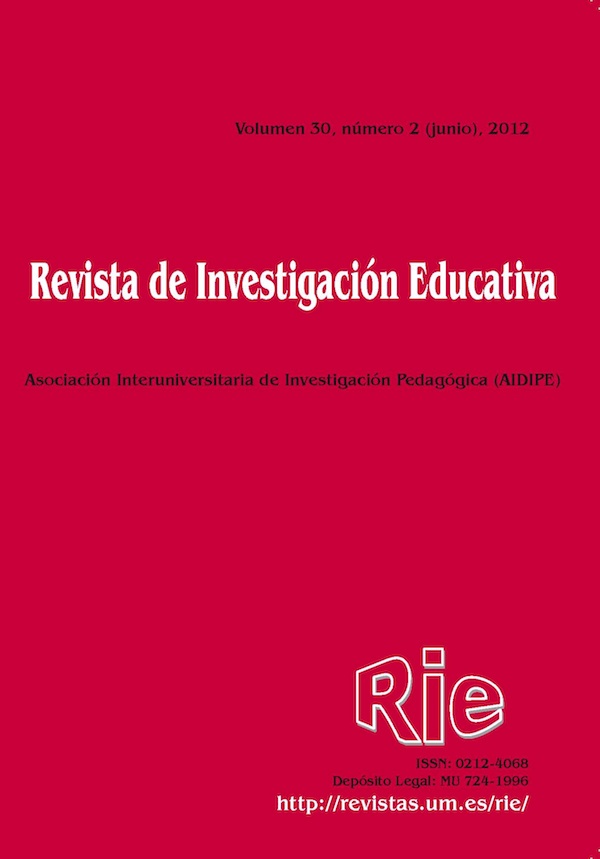Academic networks generated by spanish phd theses on mathematics education
Abstract
Introduction. We present a study of the academic networks generated by PhD theses on mathematics education read in Spain from 1976 until 2009.
Objectives. The main purpose is to identify “invisible colleges” for academic collaboration in Educational Mathematics.
Method. Data has been recovered from 328 theses listed in previuos studies, the spanish PhD theses database (TESEO), Spanish Society of Mathematic Education Research (Sociedad Española de Investigación en Educación Matemática: SEIEM), Mathematics Education departments web pages and direct survey to PhD from mathematics education area. A collaboration networks analysis is performed through bibliometrics techniques.
Results. The study both reveals gender bias of thesis advisors and shows there is no correlation between participation in PhD committees and the number of doctoral theses supervised. In this paper we provide updated information on the subject as well as show the changes produced in doctoral theses advising regarding previous works.Downloads
-
Abstract1011
-
PDF (Español (España))633
The articles and scientific documents published in RIE abide the following conditions:
1. The Servicio de Publicaciones de la Universidad de Murcia (the publisher) has the property rights (copyright) of all the documents published and allows the reuse under the user’s license indicated in point 2.
2. All documents are published in the digital edition of RIE under a Creative Commons Reconocimiento-NoComercial-SinObraDerivada 4.0 Internacional. (legal document) license. These documents can be copied, used, distributed, communicated and explained publicly if: i) the author(s) and its original source of publishing (magazine, publisher and URL of the document) are cited; ii) it is not used for commercial purpose; iii) the existence and the specifications about this license are mentioned.
3. Auto-archive’s conditions. The authors are allowed and encouraged to digitally distribute the pre-print versions (a version before evaluation) and/or post-print (a version that it is already evaluated and accepted to its publication). This promotes circulation and distribution earlier and can increase the citations and significance within the academic community.










